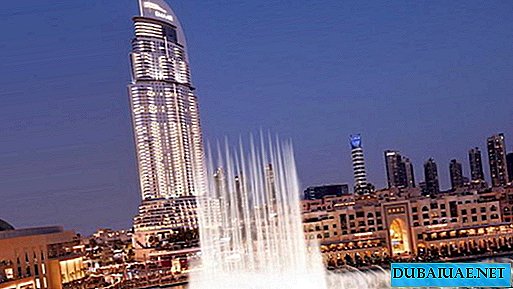 MISSION ALREADY THREE YEARS FROM THE MOMENT OF THE BEGINNING OF THE WORLD FINANCIAL CRISIS OF 2008. Significant changes have occurred in the world during this time. MANY THINK THAT WE ARE STANDING ON THE THRESHOLD OF NEW SHOCKS. AMERICA CAN NOT UNDERSTAND ITS PROBLEMS, EUROPE IS BALANCING ON THE VERGE OF DEFAULT, A WAVE OF REVOLUTIONS RIDED IN THE ARABIC WORLD. AT THIS CURRENT TIME, THE UNITED ARAB EMIRATES LOOK AT THE ISLAND OF STABILITY IN THE REGION. THE EMIRATES POPULATION IS GROWING, A LONG-TERM INVESTMENT PROJECT IS REALIZED, THE SECTORS OF THE ECONOMY SURE RECOVERED THE MOST AFFECTED BY THE CRISIS.
MISSION ALREADY THREE YEARS FROM THE MOMENT OF THE BEGINNING OF THE WORLD FINANCIAL CRISIS OF 2008. Significant changes have occurred in the world during this time. MANY THINK THAT WE ARE STANDING ON THE THRESHOLD OF NEW SHOCKS. AMERICA CAN NOT UNDERSTAND ITS PROBLEMS, EUROPE IS BALANCING ON THE VERGE OF DEFAULT, A WAVE OF REVOLUTIONS RIDED IN THE ARABIC WORLD. AT THIS CURRENT TIME, THE UNITED ARAB EMIRATES LOOK AT THE ISLAND OF STABILITY IN THE REGION. THE EMIRATES POPULATION IS GROWING, A LONG-TERM INVESTMENT PROJECT IS REALIZED, THE SECTORS OF THE ECONOMY SURE RECOVERED THE MOST AFFECTED BY THE CRISIS. About what is happening in the UAE real estate market, what is the current situation and prospects for the future, we are talking with the head of the Department of Investments and Real Estate of the Russian Council of Entrepreneurs in Dubai and the Northern Emirates, managing partner of IMEX Real Estate Oleg Vadimovich Lavrik.
Oleg Vadimovich, please tell me, what, in your opinion, are the main results of the three years that have passed since the beginning of the crisis for the UAE real estate market?
Of course, the global financial crisis that began in 2008 with the bankruptcy of Lehman Brothers was a serious test for the entire modern world economic system. And for the United Arab Emirates, this test did not pass painlessly. Despite serious support from the traditionally strong oil sector, almost all sectors of the economy have undergone significant correction. And, of course, the crisis became a particularly difficult test for the relatively young and fast-growing real estate market in the UAE. Falling property prices, on average, amounted to about 50% of pre-crisis levels. The consequence of such a serious correction was stagnation, and subsequently, the actual disappearance of the so-called “off-plan” market, that is, objects sold at the project stage. As a result, speculators left the market, and the market itself reoriented to finished real estate and end users.
It is no secret that during the several years before the crisis, the Emirates real estate market grew at a tremendous pace largely due to the influx of short-term speculative investments from around the world. People did not invest in order to get a finished property for future use, but for the purpose of subsequent resale at the construction stage or even earlier. Since financing schedules involved payment in installments during the project implementation period, this was used as financial leverage for playing in a growing market. For this reason, the market for finished real estate was of little interest to speculators. This segment naturally attracted mainly end users, that is, those who intended to use ready-made real estate for consumer or investment purposes.
Naturally, after the market began to fall, speculators left it. And the end users stayed. The “off-plan” market, overheated by speculation, disappeared along with speculators, and the market for finished (or almost finished) real estate remained and came to the fore. Over the past three years, the market has recovered from shock, and its participants have realized a new reality and have been reorganized to work in new conditions.
Have the legislative foundations of the real estate market in the UAE changed recently?
First of all, it should be said that there is still no general federal law in the field of real estate in the United Arab Emirates. Each of the seven emirates independently regulates all issues related to the real estate market on its territory. The most progressive in this direction, traditionally, is Dubai.
Immediately before the crisis began in Dubai, important new laws were passed: on the registration of real estate pledges and on the registration of objects not completed by construction. Also, over the past three years, a number of changes and amendments have been made to the existing legislative framework governing relations between tenants and owners, and between investors and developers. In general, all changes are aimed at improving the legislative regulation of the market, increasing its transparency and protecting the interests of its participants.
At the federal level, the most significant event affecting the real estate market was the introduction of changes to the procedure for providing resident visas. In May 2009, for the first time in the history of the UAE, the right of a foreign owner of residential real estate to obtain a 6-month visa was legalized at the federal level. And at the end of June this year at a meeting of the UAE government, a decision was announced to increase the period of visas granted to foreign owners from 6 months to 3 years. And although much is not yet clear in the procedure for granting visas, the very fact of making such a decision at the highest level is, of course, positive.
 What, in your opinion, are the prospects for the real estate market in Dubai and other emirates?
What, in your opinion, are the prospects for the real estate market in Dubai and other emirates?
Like any asset, the value of real estate is subject to cyclical fluctuations. Periods of growth inevitably give way to falling prices and vice versa. However, the volatility of real estate prices is relatively small. At least, the frequency and amplitude of price fluctuations in the real estate market can not be compared with the corresponding indicators of the stock market. That is why, the acquisition of real estate is considered one of the most reliable and conservative investment options.
Of course, as a result of the crisis, the Emirates real estate market was hit hard. However, the shock passed, and market participants accepted new conditions. The market has moved to a new stage - mature growth. Regarding Dubai, we can now state with confidence that the bottom of the fall has passed, and now in the most popular areas there is a moderate increase in prices of both sale and rent. Most market participants agree that over the next few years in Dubai we will see a smooth market growth.
What is such confidence based on?
Judge for yourself. Over the past three years, not a single new residential project has been laid down in Dubai. At the same time, according to the Dubai Statistical Center, the population of the emirate has grown by 300 thousand inhabitants over the same period, and the growth process continues.
This is facilitated by political stability, security, a favorable investment climate, the absence of taxes and restrictions on the movement of capital, as well as the significantly reduced costs of doing business as a result of the crisis (office rent, staff costs, etc.). All this attracts business, which, in turn, requires human resources.
Now the market is in the process of absorbing surpluses of the real estate, the construction of which was begun before the crisis. Since real estate is an asset that takes a significant amount of time to build (the building construction cycle takes, on average, 2-3 years), a shortage will inevitably arise in the market for the foreseeable future. That is why we can confidently talk about an optimistic scenario for the development of the situation on the real estate market in Dubai.
As for other emirates, in my opinion, Abu Dhabi has very good prospects, where most of the oil revenues are accumulated. Concerning the northern emirates, it is more difficult to give unambiguous forecasts. For example, Ajman and Ras Al-Khaimah faced serious problems as a result of the crisis and, apparently, they will require much more time to solve them than Dubai and Abu Dhabi.
That is, do you think that the most attractive property market in Dubai in the near future will remain?
Yes. And this is due to the fact that Dubai has the largest and most developed real estate market. Despite the potential future attractiveness of projects in Abu Dhabi, at the moment only Dubai can offer a wide selection of finished properties with the status of "freehold", allowing foreigners to own real estate. Add to this the most developed of all seven emirates infrastructure, the most favorable investment climate and prospects for further development.
 Which segment of the Dubai property market do you find the most attractive at the moment?
Which segment of the Dubai property market do you find the most attractive at the moment?
Market prices are now attractive in all segments. And if we talk about the acquisition of real estate for personal consumption (for example, for your own residence, or to host your own company’s office), we can safely recommend using the current situation and buying any suitable property at a low price. If we consider the acquisition of real estate as an investment, then I would recommend choosing housing in popular areas.
The fact is that Dubai is a city of visitors. More than 90% of the two million inhabitants of the metropolis are expatriates. Everyone needs to live, work, relax somewhere. Therefore, the rental market is very developed. Housing in popular projects is very popular, and rental income in Dubai is two to three times higher than in developed markets. In addition, taxes on income, as well as property taxes, are absent. All this makes investment in residential real estate very attractive.
As for offices, in the near future a large number of office spaces will be completed and will enter the market, the construction of which was begun even before the crisis. Therefore, from the point of view of growth in value and the amount of rental income generated, investments in office real estate in the next few years, in my opinion, look less attractive than, say, housing investments.
What recommendations could you give to our readers thinking about buying property in the Emirates?
For my part, there is only one recommendation - to buy. The market has now stabilized, there has been a clear trend towards market recovery and growth, but prices have not yet managed to rise significantly. So if someone had thoughts about buying property in Dubai, now is the time.
Thank you for the interview. We wish you success.
You can get any additional information about purchasing real estate in Dubai from IMEX Real Estate specialists by tel. in Moscow +7 495 5100008, toll-free number in the UAE 800-IMEX (800-4639) or by sending a request by e-mail [email protected]











